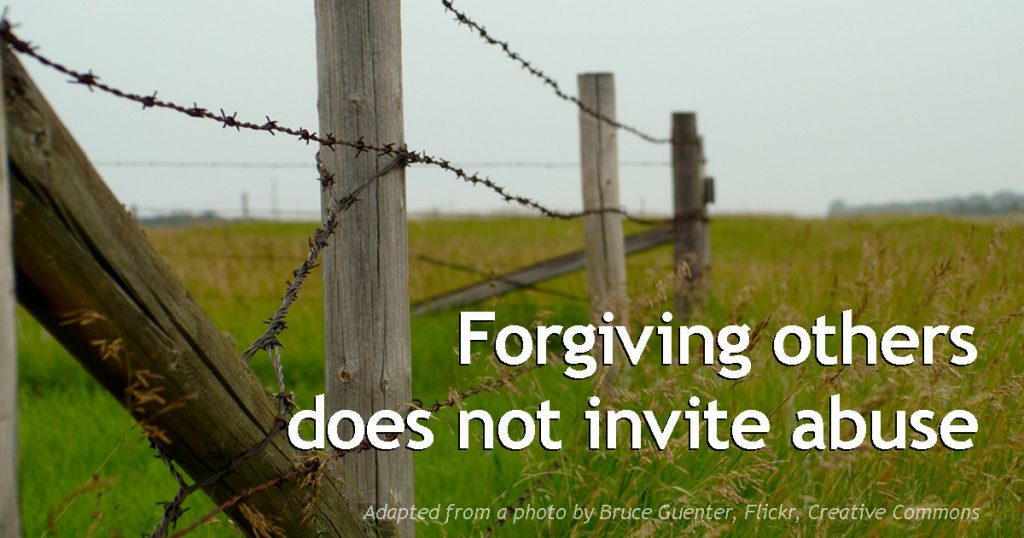
Myth #6: Forgiving an offender removes protective boundaries
Truth: Forgiveness is not reconciliation.
In an ideal world, we would always reconcile with those who hurt us. But we don’t live in an ideal world. We live in a fallen world. Sometimes reconciliation is possible; sometimes it is not.
| Forgiveness | Reconciliation |
| Forgiveness is based on truth. | Reconciliation is based on trust. |
| Forgiving others changes your heart. | Reconciliation changes the relationship. |
| Protective boundaries stay in place with forgiveness. | Protective boundaries are partially removed with reconciliation. |
| Forgiveness depends on your choices. | Reconciliation depends on the other party’s choices. |
| Forgiveness is possible through Jesus. | Reconciliation is sometimes impossible. |
Forgiveness does not automatically restore a relationship. For example, if someone harmed one of my children, I would look to Jesus for the grace to forgive. But I wouldn’t willingly allow that person to have any further access to my children. Relationships are built on trust, and if trust is not deserved, then a relationship cannot exist.
Someone I care about was raped. Although I think forgiveness is an important part of the healing process, I did everything in my power to protect the victim from having any contact with the perpetrator. I also championed the prosecution of the man who committed the crime. Simply because we may choose to forgive does not mean that the legal system should forgive. No. They have a different responsibility before God. It isn’t our job to dispense justice, but it is their job to dispense it. We are not vigilantes; we are citizens.
More next time.
These thoughts are adapted from the course Spiritual Self Defense. More info here:

Bible trivia:
Answer from last time: The prophet Samuel anointed both King Saul and King David as kings of Israel.
New question: Who captured the Ark of the Covenant and held it for several months?














